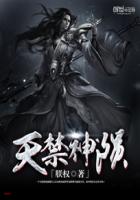Admitted, after some delay, into the generalissimo's tent, Dujardin found the old gentleman surrounded by his staff and wroth: nor was the danger to which he had been exposed his sole cause of ire.
The shot had burst through his canvas, struck a table on which was a large inkstand, and had squirted the whole contents over the despatches he was writing for Paris.
Now this old gentleman prided himself upon the neatness of his despatches: a blot on his paper darkened his soul.
Colonel Dujardin expressed his profound regret.The commander, however, continued to remonstrate."I have a great deal of writing to do," said he, "as you must be aware; and, when I am writing, Iexpect to be quiet."
Colonel Dujardin assented respectfully to the justice of this.He then explained at full length why he could not bring a gun in the battery to silence "Long Tom," and quietly asked to be permitted to run a gun out of the trenches, and take a shot at the offender.
"It is a point-blank distance, and I have a new gun, with which a man ought to be able to hit his own ball at three hundred yards."The commander hesitated.
"I cannot have the men exposed."
"I engage not to lose a man--except him who fires the gun.HE must take his chance.""Well, colonel, it must be done by volunteers.The men must not be ORDERED out on such a service as that."Colonel Dujardin bowed, and retired.
"Volunteers to go out of the trenches!" cried Sergeant La Croix, in a stentorian voice, standing erect as a poker, and swelling with importance.
There were fifty offers in less than as many seconds.
"Only twelve allowed to go," said the sergeant; "and I am one,"added he, adroitly inserting himself.
A gun was taken down, placed on a carriage, and posted near Death's Alley, but out of the line of fire.
The colonel himself superintended the loading of this gun; and to the surprise of the men had the shot weighed first, and then weighed out the powder himself.
He then waited quietly a long time till the bastion pitched one of its periodical shots into Death's Alley, but no sooner had the shot struck, and sent the sand flying past the two lanes of curious noses, than Colonel Dujardin jumped upon the gun and waved his cocked hat.At this preconcerted signal, his battery opened fire on the bastion, and the battery to his right opened on the wall that fronted them; and the colonel gave the word to run the gun out of the trenches.They ran it out into the cloud of smoke their own guns were belching forth, unseen by the enemy; but they had no sooner twisted it into the line of Long Tom, than the smoke was gone, and there they were, a fair mark.
"Back into the trenches, all but one!" roared Dujardin.
And in they ran like rabbits.
"Quick! the elevation."
Colonel Dujardin and La Croix raised the muzzle to the mark--hoo, hoo, hoo! ping, ping, ping! came the bullets about their ears.
"Away with you!" cried the colonel, taking the linstock from him.
Then Colonel Dujardin, fifteen yards from the trenches, in full blazing uniform, showed two armies what one intrepid soldier can do.
He kneeled down and adjusted his gun, just as he would have done in a practising ground.He had a pot shot to take, and a pot shot he would take.He ignored three hundred muskets that were levelled at him.He looked along his gun, adjusted it, and re-adjusted it to a hair's breadth.The enemy's bullets pattered upon it: still he adjusted it delicately.His men were groaning and tearing their hair inside at his danger.
At last it was levelled to his mind, and then his movements were as quick as they had hitherto been slow.In a moment he stood erect in the half-fencing attitude of a gunner, and his linstock at the touch-hole: a huge tongue of flame, a volume of smoke, a roar, and the iron thunderbolt was on its way, and the colonel walked haughtily but rapidly back to the trenches; for in all this no bravado.He was there to make a shot; not to throw a chance of life away watching the effect.
Ten thousand eyes did that for him.
Both French and Prussians risked their own lives craning out to see what a colonel in full uniform was doing under fire from a whole line of forts, and what would be his fate; but when he fired the gun their curiosity left the man and followed the iron thunderbolt.
For two seconds all was uncertain; the ball was travelling.
Tom gave a rear like a wild horse, his protruding muzzle went up sky-high, then was seen no more, and a ring of old iron and a clatter of fragments was heard on the top of the bastion.Long Tom was dismounted.Oh! the roar of laughter and triumph from one end to another of the trenches; and the clapping of forty thousand hands that went on for full five minutes; then the Prussians, either through a burst of generous praise for an act so chivalrous and so brilliant, or because they would not be crowed over, clapped their tea thousand hands as loudly, and thus thundering, heart-thrilling salvo of applause answered salvo on both sides that terrible arena.
That evening came a courteous and flattering message from the commander-in-chief to Colonel Dujardin; and several officers visited his quarters to look at him; they went back disappointed.The cry was, "What a miserable, melancholy dog! I expected to see a fine, dashing fellow."The trenches neared the town.Colonel Dujardin's mine was far advanced; the end of the chamber was within a few yards of the bastion.Of late, the colonel had often visited this mine in person.He seemed a little uneasy about something in that quarter;but no one knew what: he was a silent man.The third evening, after he dismounted Long Tom, he received private notice that an order was coming down from the commander-in-chief to assault the bastion.He shrugged his shoulders, but said nothing.That same night the colonel and one of his lieutenants stole out of the trenches, and by the help of a pitch-dark, windy night, got under the bastion unperceived, and crept round it, and made their observations, and got safe back.About noon down came General Raimbaut.















